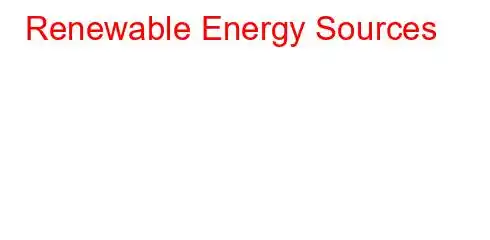Renewable Energy Sources
Renewable energy sources are sources of energy that are replenished naturally on a human timescale, such as sunlight, wind, rain, tides, waves, and geothermal heat. These sources are considered to be environmentally friendly and sustainable alternatives to traditional fossil fuels.
Types of Renewable Energy Sources:
- Solar Energy: Solar power is obtained from sunlight and can be converted into electricity using solar panels or concentrated solar power systems.
- Wind Energy: Wind power is generated by harnessing the kinetic energy of wind through wind turbines to produce electricity.
- Hydropower: Hydropower, also known as hydroelectric power, is generated from the energy of moving water, such as rivers and waterfalls.
- Geothermal Energy: Geothermal power is derived from the heat stored beneath the Earth's surface and can be used for heating and electricity generation.
- Biomass Energy: Biomass energy is produced from organic materials such as wood, crops, and waste, which can be burned or converted into biofuels.
- Ocean Energy: Ocean energy includes tidal energy, wave energy, and ocean thermal energy conversion (OTEC), which harness the energy from the ocean's waves, tides, and temperature differences.
Benefits of Renewable Energy:
- Reduces greenhouse gas emissions and mitigates climate change
- Decreases dependence on fossil fuels and enhances energy security
- Promotes sustainable development and creates green jobs
- Improves air quality and public health
- Provides access to energy in remote or off-grid areas
In conclusion, renewable energy sources play a crucial role in transitioning to a more sustainable and low-carbon energy system, offering numerous environmental, economic, and social benefits.
Okunma: 1


